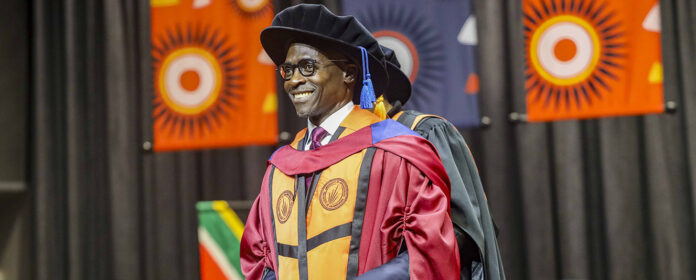Dr Malusi Gigaba, a former minister of finance and of public enterprises, recently completed his PhD at the University of Johannesburg, focusing on how state-owned entities (SOEs) can balance commercial and developmental objectives.
His research, under the supervision of Prof Domini-que Emmanuel Uwizeyimana and Dr Eric Blanco Niyitunga, looks at the necessary structural and governance reforms to unlock the potential of SOEs.
Gigaba outlined his motivation in a recent interview with Sunday World.
“My thesis was driven by an intellectual curiosity to delve deeper into these systemic issues and propose comprehensive solutions that align SOEs with South Africa’s overarching developmental agenda.”
He advocates for an independent body to manage SOEs on behalf of the state to reduce political interference.
“A cornerstone of my recommendations is the establishment of an independent shareholder body tasked with managing and controlling SOEs on behalf of the state, while the government retains ownership,” Gigaba stated.
This model could prevent patronage-driven appointments, as seen in past scandals involving Transnet and Eskom.
He called for a national ma-cro policy that defines SOE roles and funding mechanisms.
“There must be a clear governance framework that outlines SOE ownership policy, streamlines ownership, management and control, clearly outlines developmental objectives, and outlines how these must be funded,” he explained.
This would enable SOEs to invest in critical infrastructure, such as Transnet’s rail networks, without compromising financial stability. Recognising global trends, Gigaba suggests exploring mixed-ownership models to attract private investment while maintaining state control. Such initiatives could provide capital for SOEs, such as Denel, to innovate in strategic sectors, like defence.
These reforms aim to empower SOEs to drive inclusive growth from job creation to infrastructure development, aligning with the National Development Plan’s goal of creating 600 000 jobs through infrastructure by 2030.
Despite their challenges, SOEs remain vital for South Africa’s development. Well-managed SOEs can bridge urban-rural divides, reduce inequality, and position South Africa as a regional leader.
For example, SOEs like Eskom and Transnet can drive economic activity by expanding energy and transport networks. Gigaba highlighted this potential in 2012 as public enterprises minister: “Infrastructure programmes remain a stimulant in our economy to date as well as the driver and enabler of economic development and growth.”
SOEs can address unemployment by scaling up training programmes. Transnet’s R175-million partnership with the Department of Higher Education to train 1 000 maritime engineering students could expand, while SOEs could also promote inclusive growth by prioritising procurement from black- and youth-owned businesses.
But reforming SOEs requires political will and a departure from the status quo. The government’s recent move to assign SOE oversight to line ministries is a step toward clarity but risks perpetuating political influence without independent oversight, he said, adding that SOEs must evolve from fiscal burdens to engines of growth.



